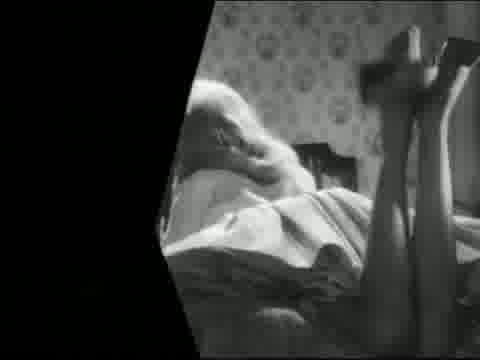Réalisation:
Stanley KubrickPhotographie:
Oswald MorrisActeurs·trices:
James Mason, Shelley Winters, Sue Lyon, Peter Sellers, Gary Cockrell, Jerry Stovin, Diana Decker, Lois Maxwell, Cec Linder, Terry Kilburn, Ed Bishop (plus)Résumés(1)
L’écrivain Humbert Humbert vient d’obtenir un poste de professeur de littérature dans une université d’été du New Hampshire. Il trouve une chambre où loger chez une veuve habitant avec sa fille Lolita, quatorze ans à peine mais déjà dotée d’un corps de femme qui émeut immédiatement l’écrivain. Pour ne pas s’éloigner de l’objet de ses désirs, Humbert épouse sa mère. Mais à force de jouer avec le feu, Humbert va se brûler à la passion dévorante qu’il éprouve pour Lolita. (LaCinetek)
(plus)Critiques (6)
Ce n'est pas vraiment captivant, mais toujours suffisamment divertissant de regarder où mènera la relation entre un homme attentionné avec des désirs cachés et une adolescente découvrant sa part de séduction féminine naturelle. Une histoire racontée calmement et de manière fluide, psychologiquement détaillée et subtile, avec des moments surprenants et comiques et le personnage mystérieusement ambigu de Peter Sellers. Ce qui manque cruellement dans la version de Lolita de Kubrick, c'est un spectre plus ouvert ou du moins implicite de leur rapprochement intime, que nous ne pouvons qu'y imaginer. Le personnage principal, Humbert, apparaît plutôt comme un amoureux platonique malheureux et impuissant, qui retient désespérément son objet de désir simplement parce qu'il ne peut lui-même l'avoir.
()
One of Kubrick’s weakest films, very uncontroversial and tedious for today’s standards. Unlike others, I have no need to praise Peter Sellers, his Quilt annoyed me every time he was on screen (due of course to the nature of his character and not the performance). James Mason’s character, on the other hand, arouses all conceivable emotions during the film. The viewer’s experience was rather positive, but I don’t think I’ll watch it again.
()
Sufficiently dramatic, sufficiently ironic, but surprisingly lacking in urgency and destiny, that's Kubrick's Lolita. I'm spoiled by Lyne's perfect remake, but when I see Humbert in Mason's unnecessarily restrained portrayal displaying unwarranted paranoid fits and when Shelley Winters, as Charlotte Haze, whines and overacts, everything boils within me. The biggest win is Lolita herself, whose bewitchingly charming actress can evoke in the viewer with her slightest smile exactly the feeling Humbert must have had when he first glimpsed her. The portrayal of Quilty is interesting too, as I remember him as an elusive omnipresent demon, and here, in Sellers' performance, he is a slimy snake, openly showing his face and implying his desires to Humbert's face. The final feelings, in the end, are mixed. The screenplay has very weak parts and minor inconsistencies, but it's not afraid to come up with amazingly sarcastic moments (chuckling while reading a love confession) or an all-telling romantic image (opening credits). But it is "only" a romantic drama and not a fateful confession full of desperate and escaping passion. 70%
()
I haven't read the book... And now I don't even have to. I can't imagine that it could be better than this all-round excellent film (for which Nabokov wrote the script himself). All in all, the film has excellent actors, a very hard to describe atmosphere (the only thing I wonder about the book is whether it is as bitterly funny in places) and Kubrick's astonishing ability to make a two and a half hour film run like a ninety minute film. Perfect. The opening scene between James Mason and Peter Sellers is one of the best that can be seen in Kubrick's work.
()
I would have loved to see a Kubrick version of the legendary Lolita that would not have had to give in to the zealous initiative of the censors and fully reflected his visual genius. But even so, edited beyond recognition, this adaptation of Nabokov's masterful postmodern novel offers so much cinematic beauty, dense erotic atmosphere, breathtakingly stylized shots and cleverly written dialogue that it’s impossible to call it a "weak" Kubrick. Scenes that seem protracted and superfluous are in fact extremely sophisticated and fit perfectly, both in content and atmosphere, into a unique cinematic puzzle that gradually – now tragically, now with an innocently ironic sneer – reveals socially unacceptable motives, and which also quite naturally brings together several different genres, from crime-noir to adventure road-movie. Above all, the excellent James Mason, whose painstaking creation of an obsessed paedophile determines the emotional aspect of the film, and the great Peter Sellers, whose peculiar oratorical performances are among the absolute highlights of the story. In the end, Kubrick's Lolita is a rather intimate odyssey into the bowels of a strange character torn apart by mental illness that may not have the same scope of thought as a comprehensive book and is not always easy to follow, but its artistic value and formal refinement cannot be denied. 85%
()
Kubrick fully devoted himself to works over which he had absolute control, and he didn't start cautiously, but right away controversially. "Lolita" was very controversial in its time, well, it still is. Collaboration with the author, Nabokov, then led to the creation of a film that is worthy of its controversy. Just the first look of James Mason (Humbert Humbert) at Sue Lyon (Lolita) clearly shows what awoke in the professor. The self-destruction is clear from the beginning, with a brilliant scene with Peter Sellers, who showcases his unique acting skills in a small space. James Mason was chosen perfectly for the role, because his expressions express exactly what they should. It contains that smeared perversity that is necessary for the role. When you focus on those subtle nuances, it is an exceptional experience. By the way, for the first time I felt that the musical component truly fits the film.
()

